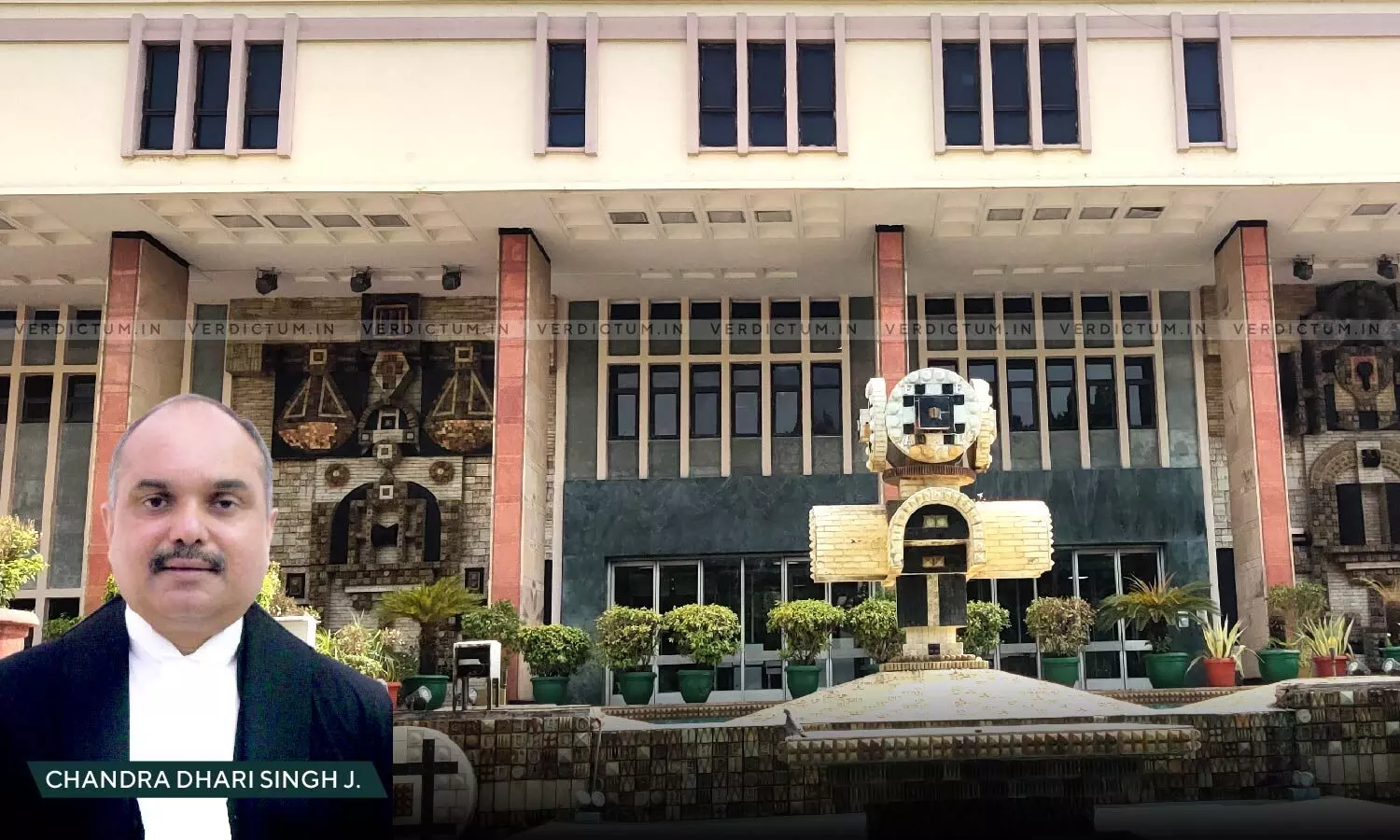
Even Erroneous Finding Of Fact By Court/Tribunal Cannot Be Challenged In Proceedings For Certiorari: Delhi HC
 |
|The Delhi High Court has refused to entertain a writ petition filed by an IIT professor seeking to set aside an inquiry report and memorandum that imposed censure and administrative actions in response to allegations of sexual harassment. It said that that a finding of fact, howsoever erroneous, recorded by a Court or a tribunal cannot be challenged in proceedings for certiorari on the ground that the relevant and material evidence adduced before the Court or the tribunal was insufficient or inadequate to sustain the impugned finding.
The Bench of Justice Chandra Dhari Singh observed that the writ of certiorari could not beissued as writ jurisdiction is supervisory, and the Court exercising it cannot act as an appellate Court. It was found that no rights of the petitioner were violated, and there were no special circumstances that required the interference of the Court.
In that context, it was said that, "The instant petition is an appeal in the garb of a writ petition. The petitioner is seeking a review of the orders despite the fact that there are no such special circumstances that require the interference of this Court. The petitioner is not aggrieved by any such violation of the rights of the petitioner, which merits intervention of this Court in the orders passed by the respondent."
In furtherance of the same, it was observed that,"The writ of certiorari cannot be issued in the present matter since for the issue of such writ, there should be an error apparent on the face of it or goes to the root of the matter. However, no such circumstances are present in the instant petition. The writ jurisdiction is supervisory and the court exercising it is not to act as an appellate court. It is well settled that the writ court would not re-appreciate the evidence and substitute its own conclusion of fact for that recorded by the adjudicating body, be it a court or a tribunal. A finding of fact, howsoever erroneous, recorded by a court or a tribunal cannot be challenged in proceedings for certiorari on the ground that the relevant and material evidence adduced before the court or the tribunal was insufficient or inadequate to sustain the impugned finding."
Counsel Arun Khatri appeared for the petitioner, while Counsel Arjun Mitra appeared for the respondents.
In this case, the petitioner, a professor at IIT Delhi, faced harassment allegations by a Ph.D. candidate in 2018. Earlier, in 2016, the petitioner withdrew as the supervisor for respondent no. 4, citing issues with data manipulation. The Internal Complaint Committee (ICC) probed the 2018 complaints, finding the petitioner guilty of stalking, intimidation, creating a hostile work environment, obstructing research, and unbecoming conduct. The disciplinary process ensued, involving appeals and examinations by the Board of Governors.
Despite dropping the sexual harassment charge, the Board imposed a censure and administrative actions. The petitioner's subsequent appeal to the Hon'ble President of India was also unsuccessful, leading to his grievance against the inquiry report, memorandum, and order.
The High Court observed that, "it is apparent that the impugned letter dated 9th August, 2021 that the petitioner has been given gave reasonable opportunity to present his case in accordance with the guidelines applicable to cases of sexual harassment. Hence, there is no infirmity that amounts to illegality per se in the impugned order therefore, this Court no infirmity in the aforesaid order."
Subsequently, it was observed that, "the grounds raised by the petitioner for setting aside the impugned order do not merit interference of this Court since, there is no error apparent on the face of the order. The respondent Authority has considered the plea of the petitioner along with the evidence and accordingly, it adjudicated upon it. There is no illegality on the part of the petitioner in passing the said impugned orders."
In light of the same, it was held that the writ petition was not a fit case interference under the extraordinary writ jurisdiction of the High Court, and was dismissed.
Cause Title: Pulak M Pandey vs Indian Institute of Technology Delhi & Ors.
Click here to read/download the Judgment